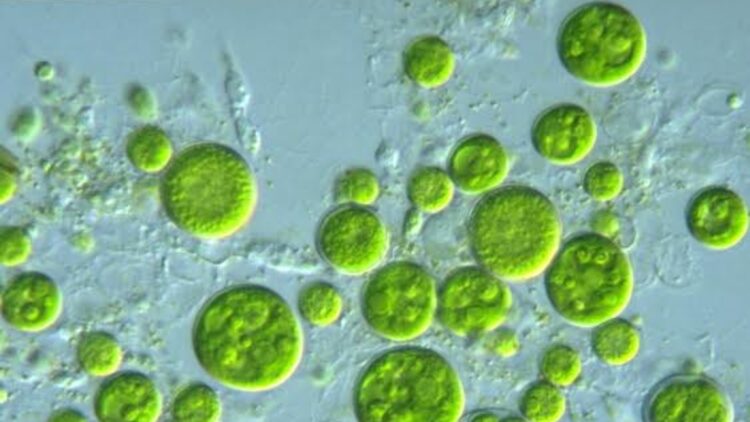World
Scientists Warn of Prochlorococcus Collapse Due to Ocean Warming

Recent studies have raised alarms about the future of Prochlorococcus, the most abundant marine microbe on Earth and a crucial contributor to nearly one-third of the planet’s oxygen production. Research conducted by the University of Washington and published in the BMJ indicates that rising ocean temperatures may threaten this essential organism, which plays a pivotal role in the marine ecosystem.
Prochlorococcus is a type of cyanobacterium found predominantly in warmer tropical waters. It thrives in regions where other organisms struggle to survive, and is recognized for its ability to perform photosynthesis, a process that converts sunlight, carbon dioxide, and water into oxygen. Oceanographer François Ribalet notes its significance, stating that this microorganism is vital for the functioning of the planet, as it produces substantial amounts of oxygen and contributes to the marine food web.
Initially, scientists believed that Prochlorococcus could adapt to the increasing temperatures caused by climate change. However, recent findings suggest a more troubling scenario. Ribalet explains that, “For a long time, scientists thought that Prochlorococcus would have a bright future, but in the warmer regions, they are not doing so well, which means there will be less carbon – less food – for the rest of the marine food web.”
The optimal temperature range for Prochlorococcus is between 19-22 degrees Celsius (66-82 degrees Fahrenheit). With global warming, ocean temperatures are expected to exceed this range, putting the survival of this microbe at risk.
In a comprehensive study, Ribalet and his team sampled approximately 800 billion cells over a span of 13 years across 90 oceanic trips. They discovered that the temperature tolerance of these microbes is lower than previously thought. Both Prochlorococcus and other marine bacteria have shown changes in their genetic response to stress, which may hinder their ability to adapt to rising temperatures.
The implications of these findings extend beyond the fate of Prochlorococcus itself. Another group of cyanobacteria, Synechococcus, which shares the same habitats, could potentially take over if Prochlorococcus declines. Ribalet warns that, “If Synechococcus takes over, it is not a fact that other organisms will be able to interact with it in the same way they have interacted with Prochlorococcus for millions of years.”
This shift could result in significant changes to the marine ecosystem. The study predicts a decrease in Prochlorococcus productivity by 17% in low tropical regions and a 10% global decline. Ribalet further clarifies that while Prochlorococcus will not vanish completely, its geographical distribution is likely to shift towards the poles.
As the effects of climate change become more pronounced, the future of marine life hangs in the balance. The findings underscore the importance of monitoring ocean temperatures and understanding the intricate relationships within marine ecosystems. The potential collapse of Prochlorococcus could have far-reaching consequences for global oxygen production and the overall health of our oceans.
-

 Lifestyle5 months ago
Lifestyle5 months agoLibraries Challenge Rising E-Book Costs Amid Growing Demand
-

 Sports4 months ago
Sports4 months agoTyreek Hill Responds to Tua Tagovailoa’s Comments on Team Dynamics
-

 Sports4 months ago
Sports4 months agoLiverpool Secures Agreement to Sign Young Striker Will Wright
-

 Lifestyle4 months ago
Lifestyle4 months agoSave Your Split Tomatoes: Expert Tips for Gardeners
-

 Lifestyle4 months ago
Lifestyle4 months agoPrincess Beatrice’s Daughter Athena Joins Siblings at London Parade
-

 Science4 months ago
Science4 months agoSan Francisco Hosts Unique Contest to Identify “Performative Males”
-

 World4 months ago
World4 months agoWinter Storms Lash New South Wales with Snow, Flood Risks
-

 Science5 months ago
Science5 months agoTrump Administration Moves to Repeal Key Climate Regulation
-

 Business5 months ago
Business5 months agoSoFi Technologies Shares Slip 2% Following Insider Stock Sale
-

 Science5 months ago
Science5 months agoNew Tool Reveals Link Between Horse Coat Condition and Parasites
-

 Sports4 months ago
Sports4 months agoElon Musk Sculpture Travels From Utah to Yosemite National Park
-

 Science5 months ago
Science5 months agoNew Study Confirms Humans Transported Stonehenge Bluestones









